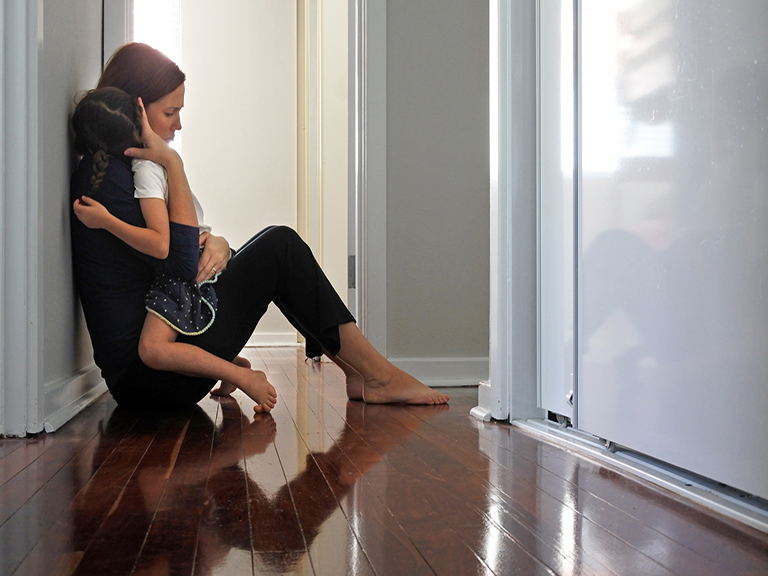- Behavior
- Parenting
Here's how to help your child heal from pandemic losses

1. What are kinds of loss?
2. How can I be supportive?
3. How to get help?
After more than a year of quarantines and social distancing from COVID-19, the pandemic has exposed many forms of grief to children besides mourning loved ones. They’ve also been hurting from losing their routines, milestone celebrations and life transitions.
How can you help your child process this painful time and move forward?
1. WHAT ARE KINDS OF LOSS?
Just like adults, children may be mourning the deaths of family members or friends who fell ill from COVID-19. But young people also may feel secondary losses, such as sense of peace, identity or accomplishments through school, sports and extracurricular activities.
“There are so many ripples for children,” says Erinn Beck, a mental health counselor based in West Palm Beach. “They can be experiencing other things that maybe parents wouldn’t think of – loss of a sense of control, loss of a place in community, and a loss of normalcy and routines.”
2. HOW CAN I BE SUPPORTIVE?
Beck suggests three ways to help your children cope with their grief: intensive listening, empathizing and modeling positive behavior.
“Parents should view this time as an opportunity to connect with their children because grief is not a road we were meant to walk alone,” she says. “First, foster an environment where kids feel safe and encouraged to share. Listen to understand and without judgment.”
To engage your child deeper instead of just prompting yes-or-no answers, ask questions such as, “How do you feel about your virtual graduation?” instead of, “Are you OK about your virtual graduation?”
Empathizing means sharing your sad feelings, such as missing your friends, routines and those who have died. That way, your children can see how you handle powerful emotions. “Kids are always looking to the adults to see how they should react to things,” Beck says.
You also can be a role model by helping your children move away from self-pity with constructive questions. “Guide them toward solutions,” Beck says. “Ask them, ‘What do you want to do about this situation?’ Kids sometimes have great creative answers.”
3. HOW TO GET HELP?
Assistance is available if your child’s reactions to loss are especially troubling or worsening. The Center for Child Counseling’s School-Based Mental Health Program operates in schools throughout Palm Beach County and is also free to children identified as struggling.
You can also register for the center’s free webinar called “Supporting Children During COVID-19.”
You may consider reaching out to other local organizations for help:
Center for Family Services
Alpert Jewish Family Services
NAMI Palm Beach County
Trustbridge Grief Support
SOURCES:
• Erinn Beck, licensed private mental health counselor
• Center for Child Counseling’s blog, “Pandemic Trauma and Schooling: Supporting Kids in Crisis”
You May Also Like
-
- Behavior
- Parenting
- Safety
How to talk to your child about suicide — and help their friends
It can be hard for parents to know what to do if their child seems depressed. But experts say it’s better to intervene before there’s a crisis. …
Read More -
- Behavior
- Health
- Parenting
Here's how you can help prevent your teen’s grief from spiraling
It may come as a surprise, but teens’ grief can look quite different from the way adults mourn. So read on for tips from our local experts on how to spot their signs of grief and w …
Read More
Related resources
-
- Health
- Parenting
- Safety
Families First of Palm Beach County
Healthy Families Florida – in-home parent support and coaching program for pregnant women and families with newborns to reduce the risk of child abuse and neglect.
561-721-2887 Website Email -
- Behavior
- Health
- Parenting
Boys Town South Florida
Based in West Palm Beach, support, services and information for at-risk children and their families in South Florida
561-612-6000 Website -
- Behavior
- Other
- Safety
Palm Beach County Youth Services
Highridge Family Center — Residential treatment center in West Palm Beach offering a three-month weekday program for troubled youth ages 11 to 16
561-625-2540 Website
